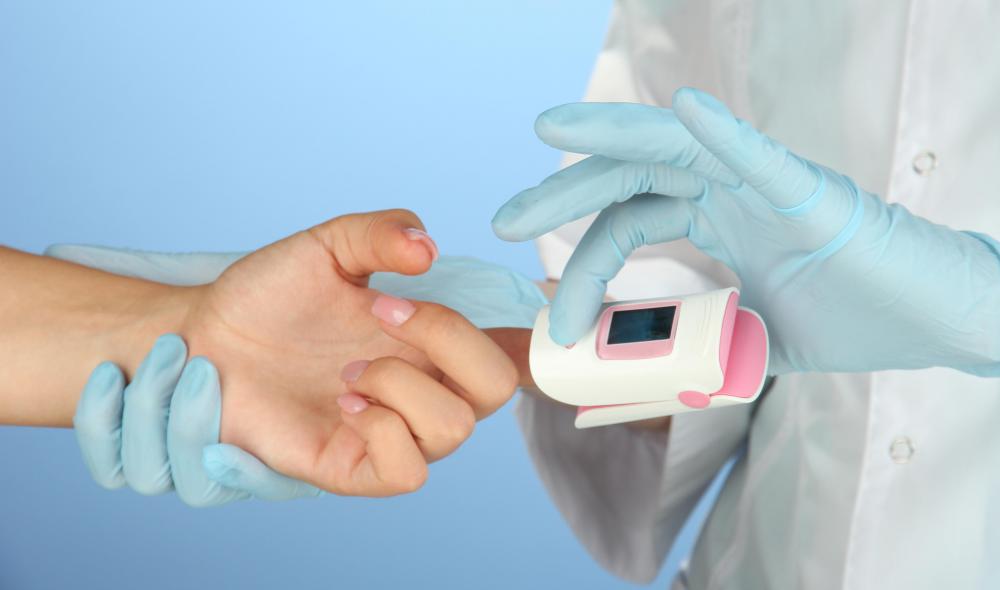At WiseGEEK, we're committed to delivering accurate, trustworthy information. Our expert-authored content is rigorously fact-checked and sourced from credible authorities. Discover how we uphold the highest standards in providing you with reliable knowledge.
What does a Hemodialysis Technician do?
A hemodialysis technician operates equipment used in hemodialysis, a process used to cleanse the blood of patients with failing kidneys. Hemodialysis replaces the function of the kidneys, scrubbing the blood to remove impurities and returning it to circulation. Patients may be prescribed hemodialysis while they are waiting for a transplantable kidney to become available or to address a temporary problem with kidney function. Pay for hemodialysis technicians varies, depending on where they practice and their level of experience.
These medical technicians work under the supervision of a registered nurse. One aspect of the job involves checking, maintaining, and programming hemodialysis machines for each patient. The hemodialysis technician also needs to be familiar with the water treatment system used at the facility where hemodialysis takes place. Training includes education in how hemodialysis was developed, how the machines work, and other matters, so that hemodialysis technicians will feel confident about their work.

When a patient arrives for treatment, the hemodialysis technician takes vital signs, records them in the patient's chart, and helps the patient get settled into a couch or chair for treatment. A needle is inserted into a vein or tubing is attached to a catheter left in place for easy access, and the hemodialysis treatment is started. While the treatment happens, the hemodialysis technician monitors the patient and the machine. Technicians need to be able to respond to alarms and complications as they develop. At the conclusion of a treatment session, the patient's vital signs are recorded again and the area is cleaned to prepare for the next patient.

Because they are the primary point of patient interaction, these technicians are an important part of the patient care team. Hemodialysis technicians can make note of physical or behavioral changes that might indicate that a patient needs a new medical evaluation. They can also answer questions, take note of patient concerns and relay them to a doctor, and provide education to patients performing self care at home. A hemodialysis technician can also instruct family members and caregivers in caring for the patient safely and appropriately.

In order to become a hemodialysis technician, it is necessary to obtain a high school diploma and take a technician course at a hospital, community college, or trade school. The course will provide students with clinical experience, as well as classroom work that prepares them to pass a certification exam. Upon certification, graduates of training programs can enter practice as hemodialysis technicians working for hospitals, clinics, and hemodialysis centers.
AS FEATURED ON:
AS FEATURED ON:
















Discussion Comments
Working in the medical field has always been rewarding to me. I had several jobs in my local hospital before deciding to go through dialysis technician training. The time, money and effort spent has been well worth it.
My patients really make the job worthwhile, and I always enjoy seeing them and try to give them the best care possible. Although they are struggling with medical problems, most of them are very upbeat and positive, which always makes my job more enjoyable.
My father has been on dialysis for several years and has worked closely with his dialysis technicians, nurses and doctor. Most of his interaction is with the nurses and the technicians, and I think it is as important for them to have good bedside manners as doctors.
He knows most of them by first name, and they do a good job of being very professional, yet friendly at the same time.
Post your comments